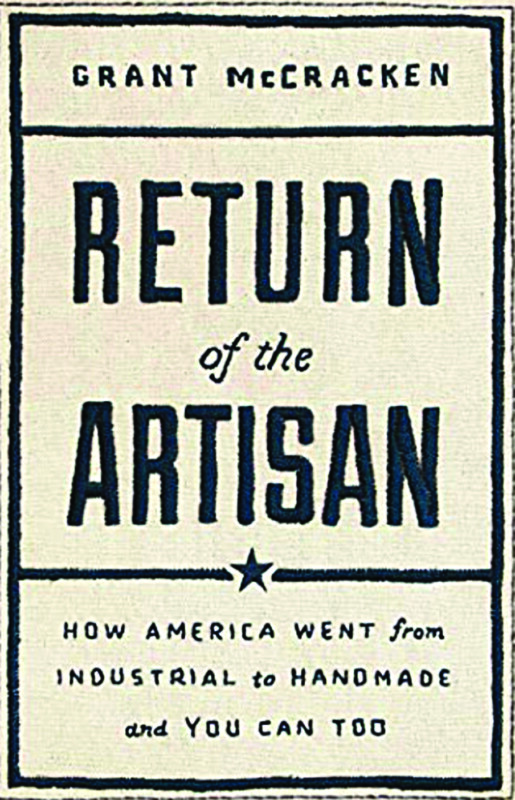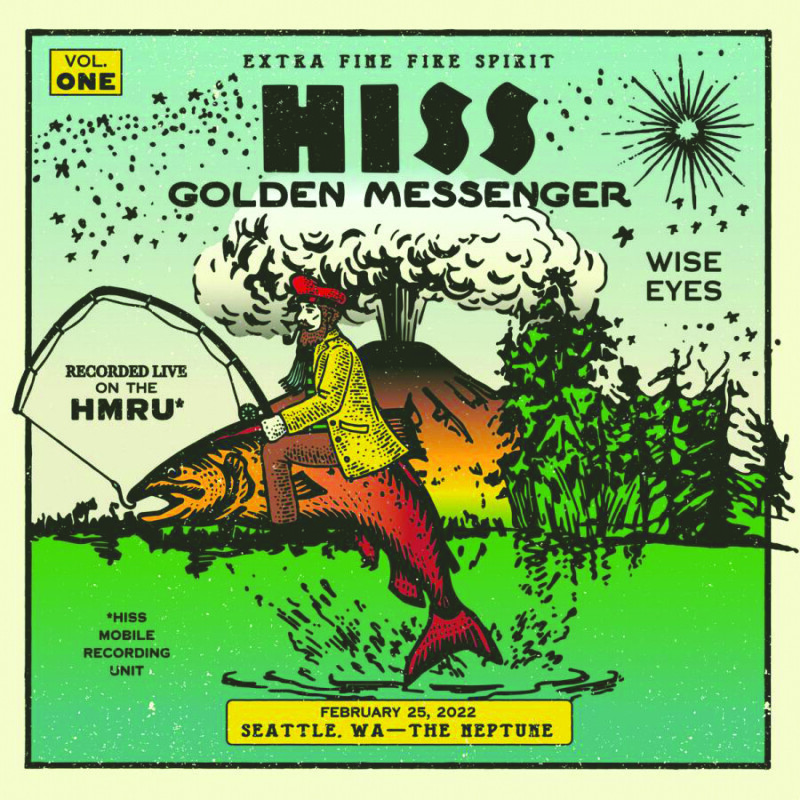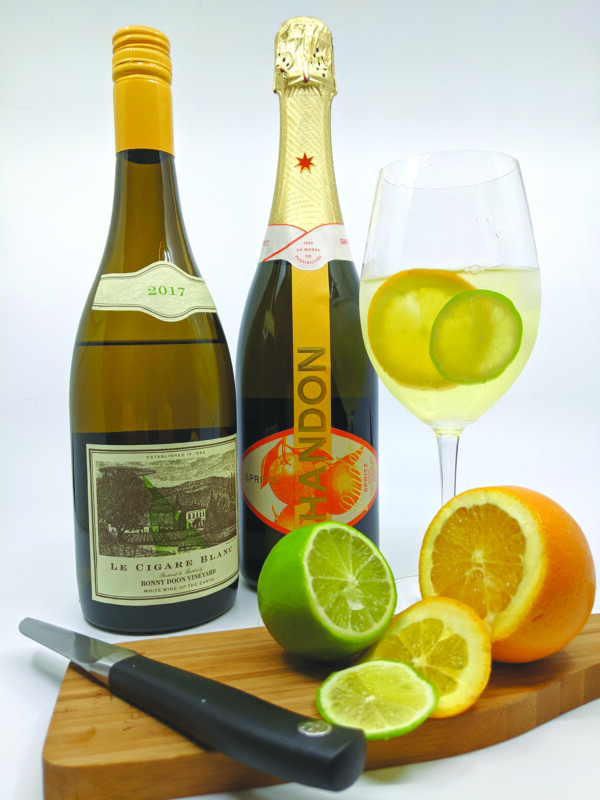Return of the Artisan, by Grant McCracken (Simon Element, 207 pages)
Behold the Pop-Tart, the humble toaster pastry introduced in 1964. It’s pretty much the same product as it was when Lyndon Johnson was president, which is to say it was the epitome of unnatural food. Designed to fit a toaster, the Pop-Tart was, Grant McCracken writes, “the ultimate triumph of artifice.”
“You couldn’t tell where it had been farmed, who had farmed it, or what, indeed, was in it. Somehow Pop-Tarts existed sui generis.”
Pop-Tarts, of course, still exist, but the world into which they were first introduced is far different now. In the 1960s, Americans were still enamored with factories and assembly lines and the convenience foods that rolled off them. There were objectors, of course; they were called hippies. As McCracken explains in Return of the Artisan, the ideals of the counterculture granola-eating warriors would ultimately prevail. America, the author believes, is over its ill-advised love affair with the industrial production of goods, and we are finding our way back to a better way of producing and consuming. It’s still capitalism, but we’ve found a better way to do it.
The change has occurred in 10 waves that began with the opening of Alice Waters’ trendy Chez Panisse restaurant in Berkeley, California, in 1971, continuing with the tide of “foodie” cookbooks and the trend toward “slow” eating and natural foods, which naturally gave way to mixology and craft beer, and ultimately the rise of “fast casual” fare (think Panera and Chipotle) and, of course, Whole Foods. Incredibly, more than half of Americans identify as a “foodie,” someone who takes an inordinate interest in what they eat and how it is prepared. The trend is so significant that even the giants of mass production are trying to present themselves as artisanal; hence, the advent of Wendy’s “natural” fries and the blocks of “handmade” soap you can buy at chain supermarkets.
But this is not just about food. There are more craft fairs than malls these days, and many of the malls that exist are struggling to survive. Even if they don’t have the time and skill to make gifts themselves, most people prefer to give handmade gifts that have (and hold) value more than anything found in a big-box store. “Artisans make gifting easy,” McCracken writes. “Their creations are perfectly gift-proportioned: authentic, human scale, handmade, they are exactly the right size and shape, plus particular and personal in just the way a gift should be. They are Goldilocks valuable: not too precious, not too mere.”
The change to a society where artisans are valued more than industry comes with subtle shifts that are potentially radical. For example, McCracken says that in this new arrangement, the consumer isn’t king, as Charles Coolidge Parlin famously said. Neither are the Mad Men. The artisans, the ones who know what they’re doing, reign. Also, artisans aren’t in it for big profit, although they, too, need to pay their bills, and McCracken argues that the artisanal economy opens up opportunity for many 9-to-5 workers who have retired or lost their jobs, providing both income and community.
“Capitalism lives to optimize. … The artisan is inclined to make the product she thinks is most compelling, for a small audience, not with the cheapest method, but the most crafted one,” McCracken writes.
McCracken, who lives in Connecticut, is a cultural anthropologist with a Ph.D., and as co-founder of something called the Artisanal Economies Project he has skin in this game. He is not just observing changes in the American economy but advocating for them, elegantly and convincingly. This is a lovely collection of essays, reminiscent of the thoughtful reflections of Bill McKibben, Howard Mansfield and Alan Lightman.
His most powerful one comes at the end of the book, when he recounts how he came to discover a simple canvas wallet that had been made by his uncle’s mother 65 years earlier. “The wallet was what we might call, after Proust, a ‘Madeleine’ object: an object charged with meaning and power,” he writes.
That wallet “opened a cut on the surface of reality. Something dangerous came spilling into life. … Somehow it managed to be both personal and completely traditional. You could see that it conformed to a traditional pattern to which generations had contributed. But it was also the work of an individual in the throes of a terrible emotion driving the stitches in one direction and then another. There was craft here and there was something craft couldn’t contain.”
There are pleasures to be found in Walmart and McDonald’s, to be sure, but they are thin ones and they make us fat. The return of the artisan, as McCracken sees it, won’t solve all our problems and is a slow work that is still in progress; it took 60 years, for example, for people to start questioning the wisdom of Pop-Tarts and mass-produced boxes of cereal. But there is value in the process, and in simply paying attention to the choices we make, McCracken maintains.
“The artisanal community is a respite precisely in that it allows us to take refuge from the blooming, buzzing world out there. It speaks to us precisely because it is not distracted and complicated by a hundred points of view.”
It remains to be seen whether the premises put forth here are true, but it’s a testament to McCracken’s persuasiveness that we want them to be true at the end. See you at the next craft fair. A
Book Notes
In the publishing world, the most prestigious books are the hardcover ones, and that prejudice trickles down to the masses. It’s mostly hardcover books that get reviewed; some publications won’t even consider paperback books. (For the record, we do on occasion.) While many paperbacks are subsequent editions of hardcovers, plenty aren’t, which means a lot of books aren’t getting reviewers’ attention. According to Publisher’s Weekly, there were twice the number of paperbacks (both trade and mass market) as hardcovers last year.
All that is to say, it’s worth poking around “new releases in paperback” to find gems that were not previously published. One appears to be Animal Joy, A Book of Laughter and Resuscitation (Graywolf, 320 pages) by Nuar Alsadir. Alsadir is an Arab-American poet in New York City, and her first nonfiction book is a lyrical and free-form exploration of the importance of laughter and humor to the human animal.
Two other new paperback titles worth your attention as we approach the end of summer reads:
¡Hola, Papi! How to Come Out in a Walmart Parking Lot and Other Life Lessons (Simon & Schuster, 224 pages) is a collection of humorous essays by advice columnist and Substack writer John Paul Brammer.
The author has been called “the Cheryl Strayed for young queer people everywhere,” but I’ve read Strayed and Brammer appears to be much funnier.
Equally fun is the novel Love in the Time of Serial of Killers (Berkley, 352 pages) by Alicia Thompson, which is about a Ph.D. candidate obsessed with true crime who goes to Florida to clean out her childhood home after her father’s death and starts suspecting that the next-door neighbor is, in fact, a serial killer.
On a much more serious note, anyone who wants to show support for Salman Rushdie, hospitalized in critical condition after he was attacked during a presentation earlier this month, could purchase his Language of Truth, a collection of the author’s essays between 2003 and 2020, which was released in paperback in July (Random House Trade, 368 pages).
A past winner of the Booker Prize, Rushdie is the author of 14 novels, including The Satanic Verses, the 1988 novel believed to be blasphemous by many Muslims. Ironically, the subject on which Rushdie was speaking at the time of the attack was about how the U.S. is a “safe haven for exiled writers,” The New York Times reported, quoting the CEO of PEN America, who said, “we can think of no comparable incident of a public attack on a literary writer on American soil.”
In the wake of the attack, The Satanic Verses re-emerged on Amazon’s top 10 list of fiction; it’s No. 1 as of this writing. A paperback edition (576 pages) is available from Random House.
Book Events
Author events
• SPENCER QUINN presents Bark to the Future: A Chet & Bernie Mystery on Sunday, Aug. 28, at noon at the Bookery (844 Elm St., Manchester, bookerymht.com, 836-6600).
• ADAM SCHIFF presents Midnight in Washington at Gibson’s Bookstore (45 S. Main St., Concord, 224-0562, gibsonsbookstore.com) on Tuesday, Aug. 30, at 2:30.
• MINDY MESSMER presents Female Disruptors: Stories of Mighty Female Scientists at the Bookery (844 Elm St., Manchester, bookerymht.com, 836-6600) on Wednesday, Aug. 14, at 5:30 p.m. Free; register at www.bookerymht.com/our-events.
• PHIL PRIMACK presents Put It Down On Paper: The Words and Life of Mary Folsom Blair at Gibson’s Bookstore (45 S. Main St., Concord, 224-0562, gibsonsbookstore.com) on Thursday, Sept. 8, at noon.
Poetry
• OPEN MIC POETRY hosted by the Poetry Society of NH at Gibson’s Bookstore (45 S. Main St., Concord, 224-0562, gibsonsbookstore.com), starting with a reading by poet Sam DeFlitch, on Wednesday, July 20, from 4:30 to 6 p.m. Newcomers encouraged. Free.
• DOWN CELLAR POETRY SALON Poetry event series presented by the Poetry Society of New Hampshire. Monthly. First Sunday. Visit poetrysocietynh.wordpress.com.
Writers groups
• MERRIMACK VALLEY WRITERS’ GROUP All published and unpublished local writers who are interested in sharing their work with other writers and giving and receiving constructive feedback are invited to join. The group meets regularly Email pembrokenhtownlibrary@gmail.com.
Book Clubs
• BOOKERY Monthly. Third Thursday, 6 p.m. 844 Elm St., Manchester. Visit bookerymht.com/online-book-club or call 836-6600.
• GIBSON’S BOOKSTORE Online, via Zoom. Monthly. First Monday, 5:30 p.m. Bookstore based in Concord. Visit gibsonsbookstore.com/gibsons-book-club-2020-2021 or call 224-0562.
• TO SHARE BREWING CO. 720 Union St., Manchester. Monthly. Second Thursday, 6 p.m. RSVP required. Visit tosharebrewing.com or call 836-6947.
• GOFFSTOWN PUBLIC LIBRARY 2 High St., Goffstown. Monthly. Third Wednesday, 1:30 p.m. Call 497-2102, email elizabethw@goffstownlibrary.com or visit goffstownlibrary.com
• BELKNAP MILL Online. Monthly. Last Wednesday, 6 p.m. Based in Laconia. Email bookclub@belknapmill.org.
• NASHUA PUBLIC LIBRARY Online. Monthly. Second Friday, 3 p.m. Call 589-4611, email information@nashualibrary.org or visit nashualibrary.org.
Language
• FRENCH LANGUAGE AND LITERATURE CLASSES
Offered remotely by the Franco-American Centre. Six-week session with classes held Thursdays from 6:30 to 8:30 p.m. $225. Visit facnh.com/education or call 623-1093.






